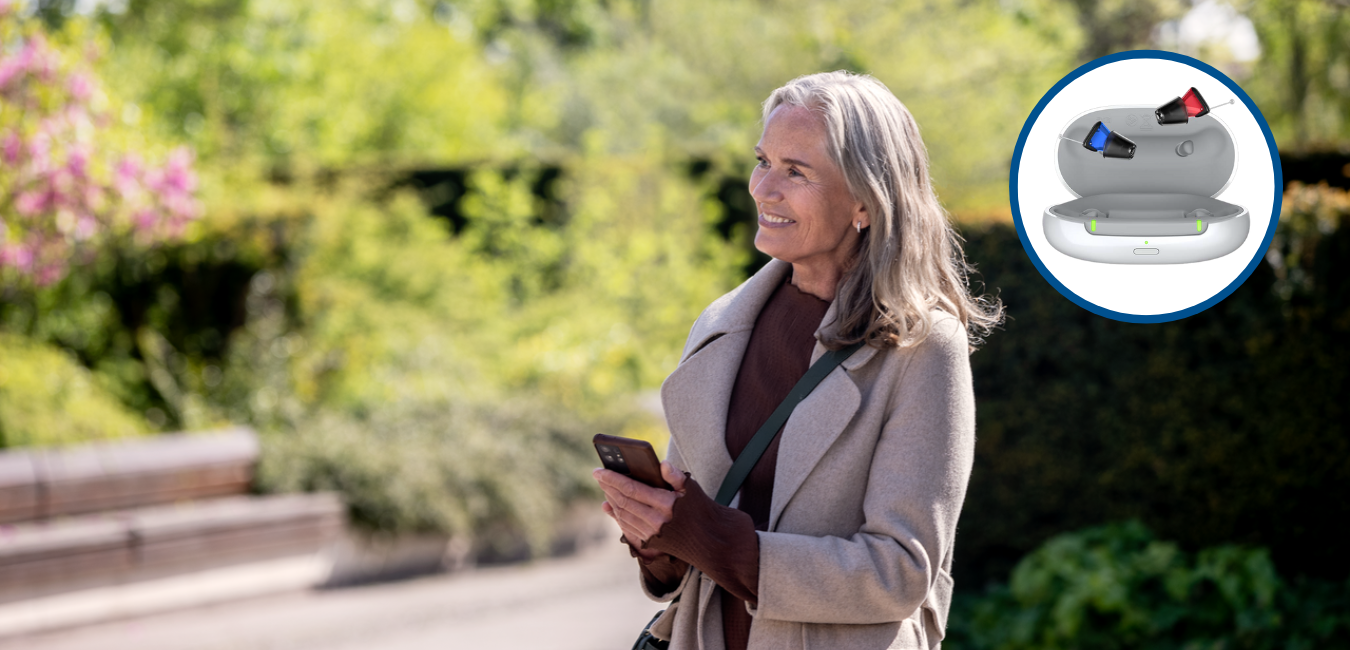Tips To Help You Adapt To Your Hearing Aids
When you’re used to a world full of muffled sounds and missed conversations, hearing things differently for the first time can be strange. Frankly, some things may actually sound funny initially – that’s okay.
People are often surprised to learn that getting new hearing aids takes some time to get used to – especially if you’ve never worn them before. In addition to understanding how they work, the new – and at times excessive – stimuli can be overwhelming for you and your brain.
Working with your hearing healthcare professional and family throughout the adjustment period is an essential element of success.
The most important thing to keep in mind is being patient. Whether you’re a first-time user or are simply breaking in new hearing aids, the following tips can help ensure the transition is smooth.
How To Adjust To New Hearing Aids
1. Start by wearing your new hearing aids at home
When you first receive your new hearing aids, it’s a good idea to put them on at home first. Start by having one-on-one conversations with family or friends, reading books aloud or talking to your pet. Not only does this time allow you to adjust to having new hearing aids but it also lets you get used to how your own voice sounds again.
Be sure to let friends and family know about the hearing aids so they can help you stay committed to wearing them and also support any changes that need to be made in the process.
2. Wear your new hearing aids as much as possible
You may think that hearing aids are only necessary when you’re in a large social gathering or an environment where there’s excessive background noise.
However, hearing aids are designed to support your hearing loss symptoms throughout every aspect of your day – even when you’re alone or at home.
When you first get them, you’ll want to start to wear them in ordinary situations from the moment you wake up until going back to bed. This includes getting groceries, watching TV, taking a shower, during a haircut etc. The more you wear your hearing aids, the easier it will be to adjust to them.
If you wait too long to use them – such as going to a restaurant, family function or concert – you run the risk of feeling overwhelmed by the increased external noise and won’t be able to enjoy yourself. Wearing them in your day-to-day environments will help increase your tolerance to the sounds around you, while giving your brain time to adjust.
3. Don’t expect any noise feedback
Older hearing aids used to be notorious for producing noise feedback that could be distracting – and downright irritating. Thankfully with today’s advancements in technology newer hearing aids no longer experience these same issues.
Equipped with feedback management systems, today’s hearing aids provide clear listening support for those suffering from hearing loss. However, if you do notice any issues while wearing your hearing aids, or experience some noise feedback, it’s important to speak with an audiologist.
In most cases, it’s possible that either the fit isn’t exactly right for your ears, some blockage (ear wax) is interfering with your ability to hear clearly, or the volume isn’t at an appropriate level.
The only way to know if the hearing aids are right for you is by wearing them. So be sure to use them as frequently as you can.
4. Remember you’re not alone
While hearing loss often feels very isolating and seems like something you need to go through on your own, there’s always help. Getting used to new hearing aids can involve some trial and error.
But that doesn’t mean you have to do it all by yourself. There are several things your family and friends can do to provide support, including (but not limited to):
- Speaking slowly when having a conversation with you
- Making sure they face you before saying anything
- Allowing you to adjust the volume on any media players – TV, radio, speakers etc. – to suit your current needs
Remember, as important as it is for you to listen to those around you, it’s equally their responsibility to understand your needs and make adjustments to help.
Hearing loss isn’t a one size fits all issue – everyone has their own specific needs and preferences.
5. Don’t be afraid of large groups
Depending on how long you’ve been suffering from hearing loss, it could be intimidating to communicate in larger groups – especially if you’re used to having difficulty. However, when you get new hearing aids, it’s crucial that you don’t avoid these types of gatherings.
Testing them in different social settings is essential to determining any adjustments or changes that need to be made.
Using your aids in larger social settings ensures they meet your lifestyle needs. That said, don’t feel like you need to rush into any large group events or family outings.
The more time you spend at home wearing your new hearing aids, the more equipped your brain will be to process external sounds.
6. Turn on captions or subtitles
Whether you have difficulty hearing or not, visual cues make it significantly easier to process new information – including sound. This is why it’s better to communicate with someone face-to-face than have them turned away from you.
When adjusting to your hearing aids, it’s beneficial to take advantage of the different types of visual tools available. Don’t be ashamed of using captions or subtitles when watching TV or listening to any other media.
These are an excellent way to support your brain while it works toward making new connections between certain sounds and words. When you see the word at the same time as you hear it, your brain is better able to sync the two up.
Plus, as a bonus, you can use this as an opportunity to explore different shows or movies you wouldn’t usually watch.
How To Help A Loved One With New Hearing Aids
Getting new hearing aids can be an adjustment for both the individual and those around them. If someone you love recently got hearing aids, there are several ways you can help them adapt.
Working together towards improving their listening allows you and your loved one to build a new bond, while also ensuring they don’t feel alone during the process.
Here are some ways you can offer support:
- Have one-on-one conversations to practice listening
- Have them read the newspaper or a book out loud to you
- Quiz them on their sound recognition by coming up with a list of word pairs or difficult sounds to practice
- Be patient and allow for sufficient time for them to relearn words and sounds
- Offer a listening ear in the event that they feel frustrated or discouraged about their new hearing aids
- Participate in appointments to ensure any lingering questions or potential issues are addressed
- Keep things light-hearted by finding the humour and remembering it’s okay to laugh
- Learn as much as you can about hearing loss, prevention and hearing aids
What To Do Next?
To learn more about how you can make your transition with new hearing aids easy and comfortable, call Hearing Solutions at 1-888-811-9799 or email reqesutinfo@hearingsolutions.ca.
References
Cleveland Clinic. (2022, July 21). Six Tips for Getting Used to Your New Hearing Aids. Cleveland Clinic. Retrieved November 22, 2022, from https://health.clevelandclinic.org/how-to-get-used-to-hearing-aids/
Victory, J. (2021, June 21). Frequently asked questions about new hearing aids. Healthy Hearing. Retrieved November 22, 2022, from https://www.healthyhearing.com/report/53210-New-hearing-aids-faq
Victory, J. (2022, February 16). 7 tips for getting used to new hearing aids. Healthy Hearing. Retrieved November 22, 2022, from https://www.healthyhearing.com/report/51911-How-to-help-a-loved-one-get-accustomed-to-new-hearing-aids
Wadyka, S. (2019, March 28). How to Get Used to Hearing Aids. Consumer Reports. Retrieved November 22, 2022, from https://www.consumerreports.org/hearing-aids/how-to-get-used-to-hearing-aids/







